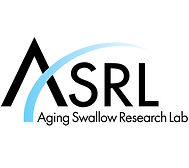Swallowing impairment, or dysphagia, is highly prevalent in older people living in long-term care, as are oral health concerns such as missing teeth and periodontitis. Texture-modified diets are frequently prescribed for long-term care residents to manage concerning oral health conditions and dysphagia,
but their use is associated with increased risk of malnutrition, dehydration, and reduced quality of
life. This survey study was conducted to explore the knowledge and perspectives of long-term care
staff pertaining to swallowing disorders, oral health, texture-modified diet use, and barriers and
facilitators to identifying and advocating for swallowing and/or oral health assessments for long-term
care residents. The survey was developed with input from an advisory panel and refined through two
rounds of Delphi-method polling. The survey was administered to staff working in long-term care
facilities in roles that involved face-to-face contact with residents in the provinces of Ontario, New
Brunswick, Nova Scotia, Prince Edward Island, and Newfoundland and Labrador. Complete responses
were obtained from 148 participants who primarily reported working as nursing assistants, health
care aides, or personal support workers in Nova Scotia and New Brunswick. The results suggest that
frontline long-term care staff may have limited knowledge of swallowing disorders, and overreliance
on texture-modified diets is likely. Instrumental swallowing evaluations and professional oral health
assessments appear to be rarely accessed. Speech-language pathologist involvement on longterm care interprofessional teams could be beneficial for educating staff, providing comprehensive
management of swallowing impairments, and curbing the overuse of texture-modified diets in longterm care.










